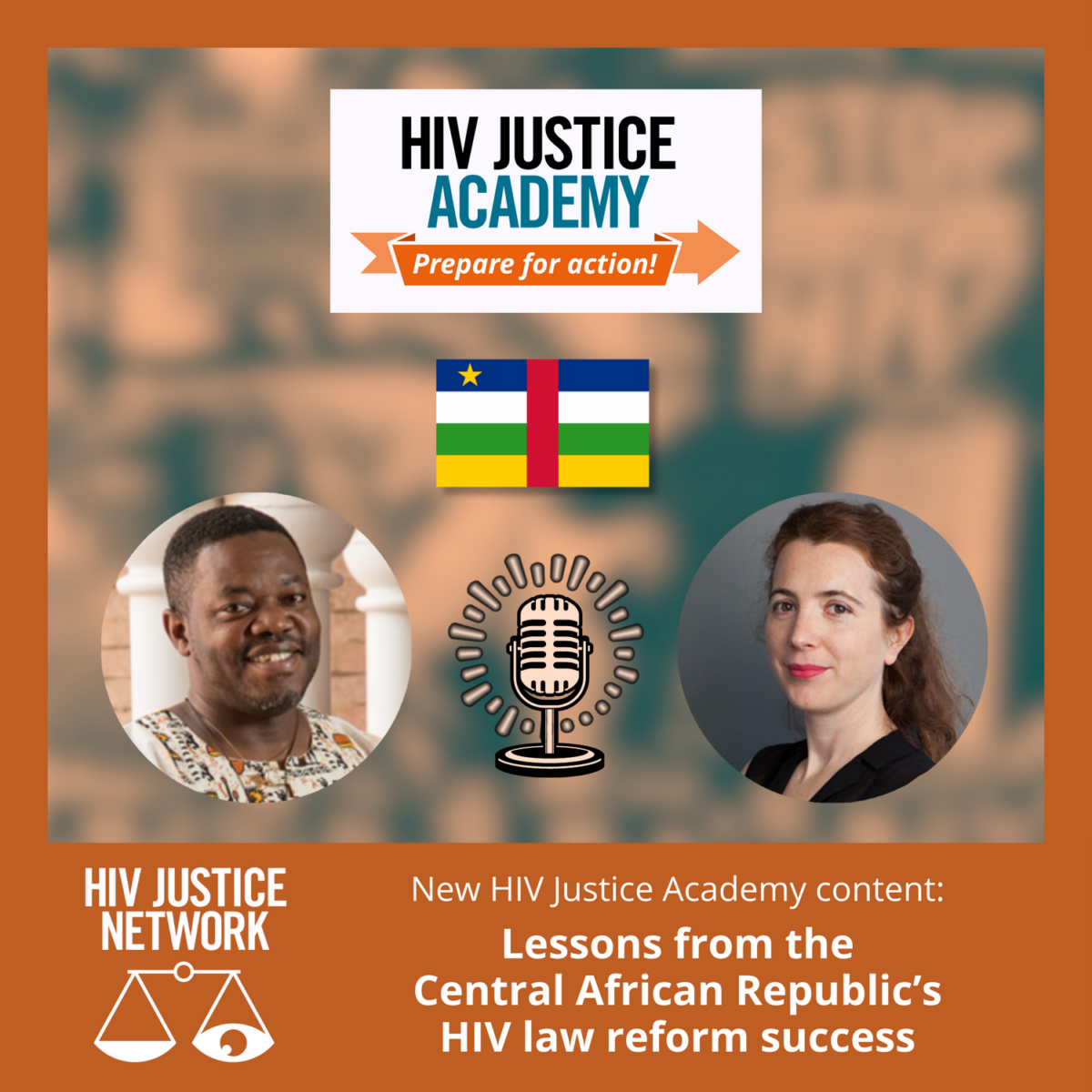
In the mid-2000s, many countries across Africa adopted HIV laws. Many of these laws contained important protections covering discrimination, privacy, and access to medications. Unfortunately, they also included overly broad and ill-informed HIV criminalisation provisions.
The Central Africa Republic (CAR) adopted an HIV law in 2006 which not only criminalised HIV non-disclosure, exposure or transmission, it also required people living with HIV to undergo treatment as prescribed by a doctor and engage in protected sex and an obligation to disclose their HIV-positive status to sexual partners.
Given the significant problems with these aspects of the law, multiple law reform attempts were made but none were successful until a new law – Law 22-016 on HIV and AIDS in the Central African Republic – was finally enacted on 18 November 2022.
How did it happen? What changed? Why was the law finally reformed?
Christian Tshimbalanga is a lawyer from the Democratic Republic of Congo with many years’ experience working on human rights and HIV in Africa. Through his work with UNAIDS, Christian provided critical support to the law reform process following it through until Parliament voted on the law. Cécile Kazatchkine (Senior Policy Analyst at the HIV Legal Network) asked Christian to share lessons learned to help others working to reform problematic HIV laws.
Their 25 minute, French-language audio conversation is now available as an additional case study in Chapter 5 of the HIV Justice Academy’s free HIV Criminalisation Online Course: How to advocate against HIV criminalisation. A translated transcript of the conversation is also available in the English, Spanish and Russian version of the course.
Christian’s role was to accompany the process until the law was voted on in Parliament. Several elements of Christian’s account stood out for us:
- In his role as an UNAIDS representative and technical partner, Christian was able to devote significant time to the law reform process, monitoring what was happening and pushing the bill through each stage of the process. Having a dedicated person on the ground to accompany the legislative process on a day-to-day basis was critical to the success.
- Civil society was a key partner. The Central African Network of People Living with HIV (RECAPEV) and the Central African Network on Ethics and Rights (RCED) pushed hard for the law to be revised. UNAIDS provided them with a small amount of financial support which enabled them to increase their capacity to sustain this advocacy.
- Local partners and international organisations were also partners in the law reform efforts, including the National AIDS Council (CNLS), the Ministry of Health and the Minister of Justice, as well as UNDP, UNAIDS, and the French Red Cross (the principal recipient of Global Fund funding in CAR).
- A memorandum outlining the new bill was drafted by various stakeholders including civil society. It informed parliamentarians about the relevant public health and human rights issues and the scientific evidence related to HIV.
- Following the example of a previous forum in Madagascar on a draft law on sexual and reproductive health, a forum was organised for (primarily male) parliamentarians and their (female) spouses. Because issues of this intimate nature are often discussed in the home, involving spouses was strategic. Several people living with HIV opened the forum by talking about their lived realities and the persistence of HIV-related stigma and discrimination in CAR.
While worthy of celebration, the new legislation is not a complete victory. It does not fully decriminalise HIV but it does provide a much narrower definition of the prohibited conduct. Under the 2006 law, a person living with HIV could be prosecuted simply for HIV ‘exposure’ without neither intent nor transmission. The 2022 Act criminalises “intentional transmission of the virus,” defined as, inter alia, the fact that a person who knows his or her status intentionally transmits the virus through unprotected sexual relations without disclosing his or her seropositivity. A list of circumstances where the criminal law should not be applied is also included (e.g., in the case of transmission of the virus from a mother to her child).
For more information on the 2022 Act, see the HIV Justice Network’s Global HIV Criminalisation Database.
To enrol in the HIV Criminalisation Online Course, visit the HIV Justice Academy and sign up. It’s free!